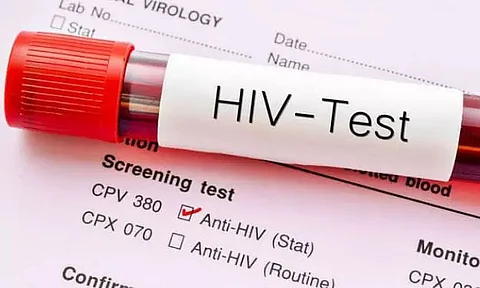
- Home
- Live Blog
- Breaking News
- Top Headlines
- Cities
- NE News
- Sentinel Media
- Sports
- Education
- Jobs

Our Correspondent
Itanagar: A total of 434 cases of HIV/AIDS have been detected in the State as on December 31, 2019, Arunachal Pradesh State AIDS Control Society (APSACS) Mission Director Dr Riken Rina informed.
The positive cases of 434 have been detected in the state out of total 4, 69,168 tests conducted till the period, Dr Rina disclosed during an interaction programme of a four-day induction training of 40 outreach workers of various NGOs to implement targeted intervention programme, conducted by APSACS here on Friday.
While Papum Pare district top the list of HIV/AIDS patients with 272 cases, Lohit district comes in second with 46 cases, followed by East Siang 26, West Siang and Changlang districts with 19 cases each, West Kameng (14), Namsai (12), Lower Subansiri (8), East Kameng (5), Tawang (4), Lower Dibang Valley and Tirap with three cases each, Upper Siang (2) and Dibang Valley recorded only one case.
"Though no HIV case was detected in Kurung Kumey, Upper Subansiri and Anjaw districts, but HIV has taken a menacing form which calls for concerted efforts with pragmatic steps involving various sections of the society is need of the time to prevent spread of HIV," Dr Rina added.
Pointing out that sharing needles, syringes or other drug injection equipment, man having sex with man put users at high risk for getting or transmitting HIV and other infections, APSACS Assistant Director Dr Marto Ete said those inject drug are known as injecting drug users (IDUs).
"Bridge population comprise people, who, through close proximity to high risk groups are at the risk of contracting HIV. Quite often they are clients or partners of male and female sex workers and mostly truckers and migrant labourers, he said, adding they are a critical group because of their 'mobility with HIV'.
"Their living and working conditions, sexually active age and separation from regular partners for extended periods of time predispose them to paid sex or sex with non-regular partners. Further, inadequate access to treatment for sexually transmitted infections aggravates the risk of contracting and transmitting the virus," Dr Ete added.